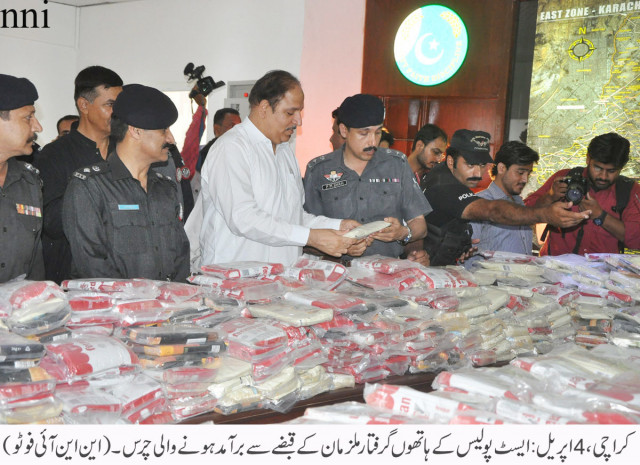Our drug problem
The UNODC report is a helpful starting point and it is now for the government to respond to the challenge.

There are around 4.25 million drug users in Pakistan who are considered to be dependent — physically addicted rather than simply being users or abusers of a substance. PHOTO: NNI/FILE
Those who inject drugs often share their needles with others. Needle sharing has long been identified with the spread of HIV/AIDS and hepatitis C. There are low levels of public awareness about HIV/AIDS and its transmission, and strong resistance to disseminating educative material or educating young people as to the dangers of poly-drug use and abuse. A desire to perpetuate ignorance will feed into an expanding drug culture. The UNODC recommended that they and the government develop an action plan, which would include an awareness campaign, as well as doing some much-needed capacity-building in the scant facilities that already exist. Pakistan is located next to Afghanistan, one of the largest opiate producing countries in the world, and raw opium is regularly trafficked across our borders to feed both the domestic and global markets. The drug problem is not going to be wished away. It is deeply entrenched, growing, and requires a determined national intervention if it is not to mushroom. The UNODC report is a helpful starting point and it is now for the government to respond to the challenge.
Published in The Express Tribune, May 25th, 2014.
Like Opinion & Editorial on Facebook, follow @ETOpEd on Twitter to receive all updates on all our daily pieces.















COMMENTS
Comments are moderated and generally will be posted if they are on-topic and not abusive.
For more information, please see our Comments FAQ